The CMG Reservoir Simulation Foundation (Foundation CMG) established an Industrial Research Chair in OPTIMIZATION AND INTEGRATION OF RESERVOIR SIMULATION AND PRODUCTION FACILITIES, in the University of Campinas, UNICAMP, Brazil.
The Foundation CMG funding is supporting a chair in reservoir engineering, which is led by Dr. Denis Schiozer. The chair is supporting Schiozer's team of research associates and students in undertaking leading edge research in innovative methods for the optimization and integration between reservoirs and surface facilities.
The central idea of the Chair is to:- Apply optimization techniques to production strategy definition including operational restrictions and multiple reservoirs producing to common surface facilities.
- Obtain efficient management of multiple offshore reservoirs with shared production systems and some advanced production systems (subsea networks, separation and treatment facilities) in Pre-Salt and heavy oil fields scenarios.
- Apply optimization techniques to real-time operations in oilfield production.
Comparison of coupling methodologies
- Develop a framework to integrate reservoir and production system data, in the same approach of simulation pre-processing, oriented to optimization of multiple scenarios.
- Evaluate reservoir and production system models evaluable in integrated simulators with some comparative tests to validate the integration.
- Evaluate field management in coupled simulations focusing production optimization and decision.
- Study production system modeling, subsea and surface networks, separation and treatment facilities inside integration modeling context and the impact in production optimization.
- Compare the network solutions adopted by coupling approaches to evaluate how the simplification of production system model impact in decision analysis.
- Evaluate production optimization of integrated asset models in uncertain analysis context.
- Development of pre-salt offshore fields, in general natural fractured reservoirs with high productive wells that share production in common surface facilities, exploited by WAG injector wells with recycled gas and smart wells.
- Evaluation of heavy oil mature fields with a high water rate production revitalized with recent advanced subsea pumping, separation and injection technologies in order to increase oil production.
Integrated models will be developed based on reservoir study cases benchmarked to decision analysis regarding exploitation strategy selection in Brazilian pre-salt and heavy oil fields scenarios.
The expected results are:
- Find best available solutions to evaluate integration modeling of reservoir simulation with constrained production facilities and production optimization, what we believe to get the better decision to manage petroleum fields.
- Find adequate optimization techniques applied to field management and production strategy definition including operational restrictions and multiple reservoirs producing to common surface facilities especially in pre-salt and heavy oil mature fields production scenarios.
About the Foundation CMG chairs
Foundation CMG will take advantage of the 27 years of experience that Dr. Schiozer brings to the area of reservoir management and simulation. Schiozer joined the faculty at UNICAMP in 1988 and holds Ph.D. degree in Petroleum Engineering from Stanford University, M.S. degree in Petroleum Engineering from University of Campinas (UNICAMP), a B.S. in Aeronautical Engineering from the Technological Institute of Aeronautics (ITA) and a M.B.A in Administration from Getúlio Vargas Foundation (FGV). He had more than 40 financed projects from the oil industries and is currently the director of the Center for Petroleum Studies at UNICAMP; he coordinates UNISIM (Research group on Reservoir Simulation) for 18 years.
About UNICAMP
Unicamp was founded on October 5, 1966. It can be considered a young institution and one that has already developed a strong tradition in education, research and services to society. The project to create Unicamp was a response to the growing demand for qualified personnel in a region of the country - the State of São Paulo - that by the 1960s accounted for 40% of Brazil's industrial capacity and 25% of its economically active population.
Unicamp had already attracted more than 200 foreign academics in a wide range of areas and about 180 academics from the best Brazilian universities. Unicamp has three campuses - in Campinas, Piracicaba and Limeira - which are home to 22 teaching and research centers. It also has a vast hospital complex; 23 interdisciplinary centers; two technical high schools; and a series of support units within a universe of about 50 thousand people in which thousands of research projects are carried out.
In 1987, the Center for Petroleum Studies (CEPETRO), graduate program in Petroleum Engineering and the Department of Petroleum Engineering (DEP) were created in order to enable broad cooperation between the two institutions and promote research and the training of human resources in oil. Today, CEPETRO has many research activities and many projects financed mainly by oil companies, state of São Paulo and ANP (Brazilian National Oil Agency). Brazil has a law that establish that part of the revenues from the oil industry must be invested in research in the country; this had a significant impact on the research in the petroleum areas in the country and yield a high number of cooperation agreements of CEPETRO and oil companies.
UNISIM, one of the laboratories of CEPETRO, was created in 1996 by a partnership between Petrobras, UNICAMP and FAPESP, with an agreement between the University and the companies for technological innovation. In August 2014, UNISIM achieved 18 years and had, as main results: more than 100 students, more than 320 articles, 44 funded projects (more than US$26 million) and several prizes.
About Foundation CMG
Founded in 1978, CMG Reservoir Simulation Foundation (Foundation CMG) was initially developed at the University of Calgary in the Chemical and Petroleum Engineering Department. Foundation CMG promotes and financially supports research and development and students through research grants at universities around the world focusing on reservoir simulation. Foundation CMG has a rich history of more than 30 years working in several countries around the world.






